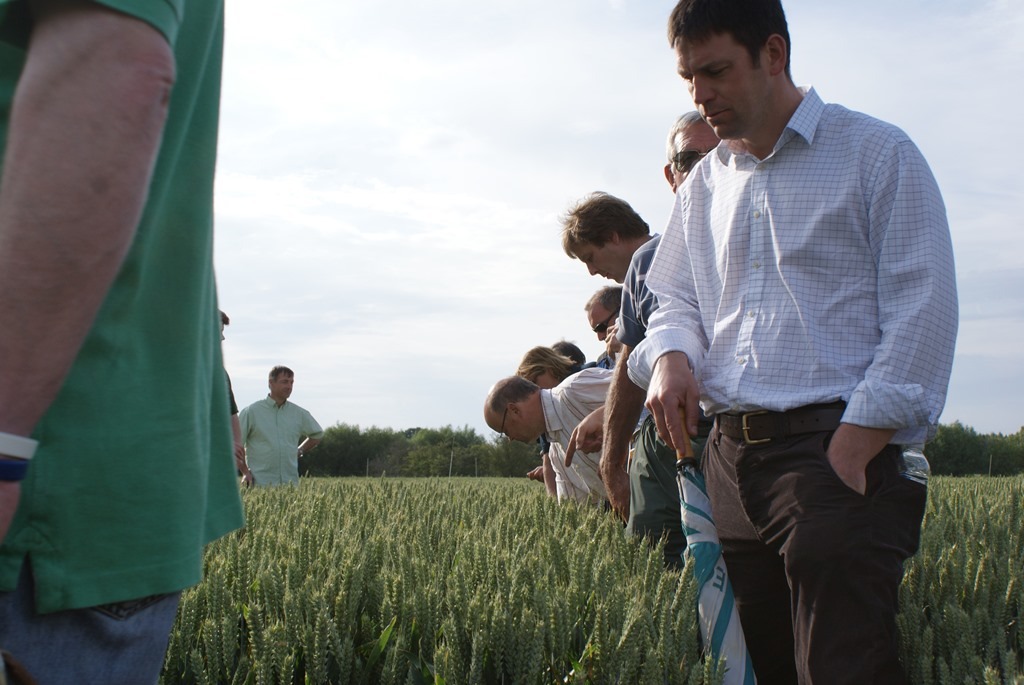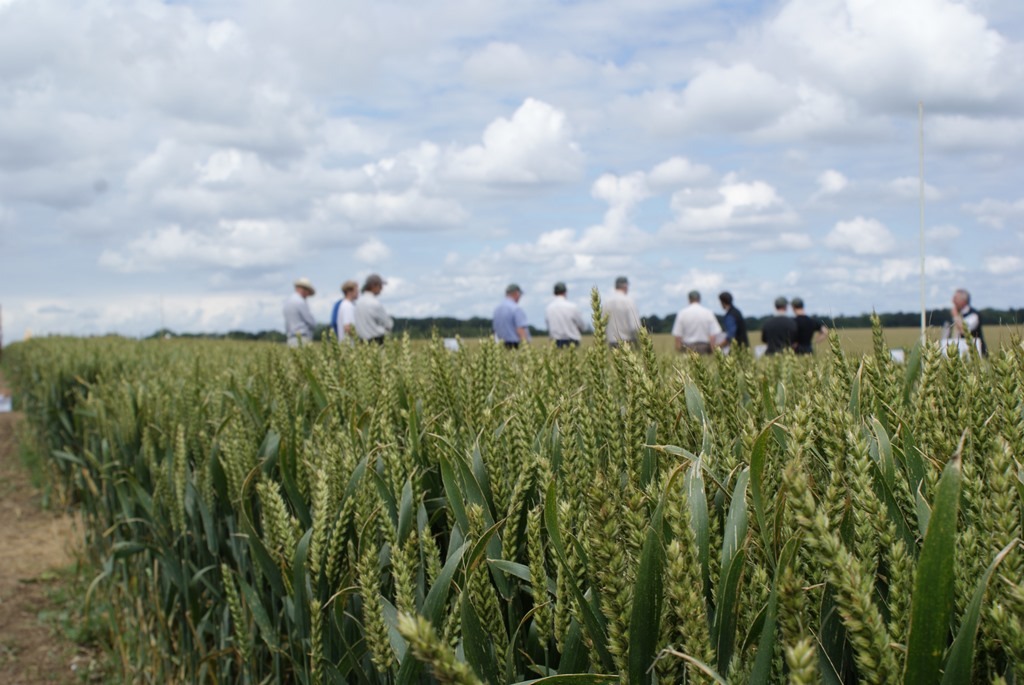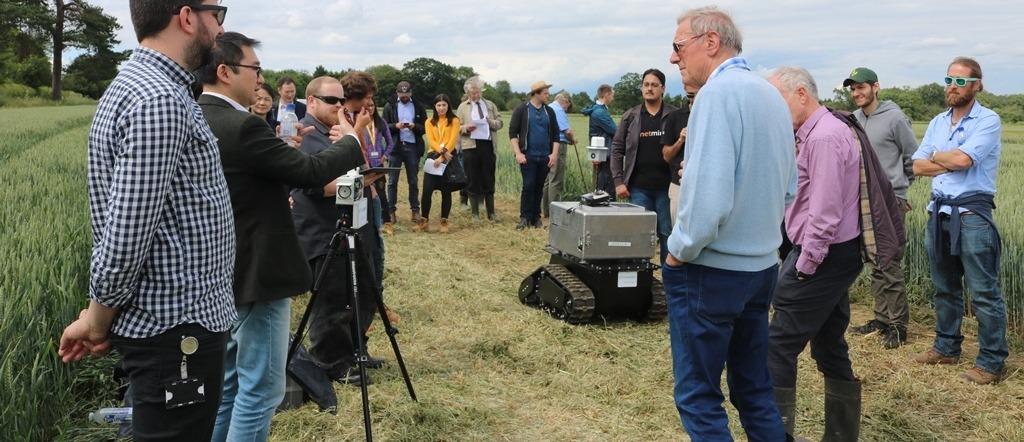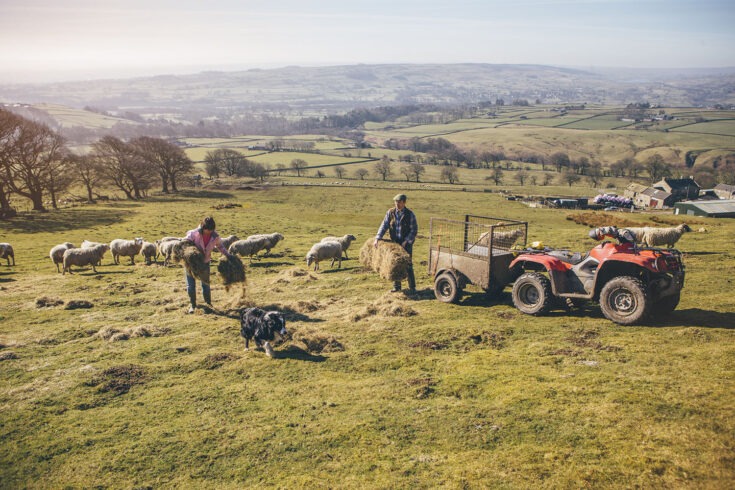UKRI and Defra have announced an R&D collaboration for a new funding opportunity, Farming Innovation Pathways.
The competition will be delivered through UKRI’s Industrial Strategy Challenge Fund (ISCF) Transforming Food Production, aimed at developing new and existing farm-focused innovations.
UKRI has said it’s keen to ensure Farming Innovation Pathways translates leading research in agriculture into practical guidance to directly benefit farmers and support them to address the challenges of productivity, sustainability, and net zero emissions in UK farming.
The first competition of its kind following the UK’s departure from the EU, it will pave the way for R&D to “turbocharge” future innovation in the agricultural sector, said the non-departmental public body, responsible for the government’s £8bn annual R&D budget.
Farming Innovation Pathways will act as a bridge between the final stages of the Transforming Food Production programme and the launch of the Defra R&D Innovation package in 2022.
There are a number of innovations already funded by the programme in areas such as insect farming, sustainable livestock feed, agricultural robotics and autonomous growing systems.
The new competition will be open to ideas addressing challenges across the agri-food sector. Priorities will include robotics and automation, which could include things like vision-guided robotic weeding systems, and novel food production systems, including vertical farming.
Funded through Defra’s Future Farming & Countryside Programme, this £12 million opportunity will bring together farmers, growers and businesses, enabling them to develop novel technological solutions.
The competition has a dual-pronged approach, supporting a range of projects which can be from the initial spark of an idea through to developing transformational technologies aimed at revitalising farming practice and which can be taken up across the sector.
Farming Innovation Pathways aims to support the adoption of innovative technologies and practices, so an important aspect will be that applicants develop solutions with the engagement of farmers and growers.
The funding is split between:
- feasibility projects (£5m): to evaluate the potential of early-stage ideas or innovations that tackle on-farm challenges, that could lead to further R&D to develop ideas into technically and commercially feasible solutions
- industrial research (£7m): to develop novel high-potential solutions targeting real issues affecting farmers, growers and other agribusinesses, or further develop existing solutions. This will deliver transformative solutions that tackle problems farmers are currently facing. It will include working with stakeholders to assess how solutions will be integrated within production systems to achieve widespread adoption.
The competition opens for applications on 1 March with a briefing event scheduled for 11 March.
Katrina Hayter, challenge director for UKRI’s Transforming Food Production challenge, said Defra’s involvement would ensure a coordinated approach to support innovation to help develop a sustainable agricultural sector.
“There are many new individual solutions for the farming sector, but strong engagement with farmers in the innovation process ensures that these solutions can be quickly deployed within an agricultural production system.
“It is also really important that we can demonstrate the benefits of these solutions to farmers and growers, as well as the wider industry. There are many economic and environmental challenges facing the agriculture sector in the UK and further afield.
“In this context, it is vital that we work with innovators and farmers to ensure good ideas and new technologies have clear routes to adoption, effective business benefits for users and the ability to improve longer-term productivity and sustainability of the sector.”
Victoria Prentis, Defra Minister for Farming, Fisheries and Food, said she wanted the Farming Innovation Pathways competition to bring farmers and growers the opportunity to see their “bold and innovative” ideas become reality.
“We want to see farmers manage their businesses in a way that delivers profitable food production and the recovery of nature, using the best modern technology available today.
“Promising innovations such as robotics and automation, and novel food production systems have the potential to transform business performance for our farmers and help them address some of the industry’s greatest challenges.”
UKRI’s £90m Transforming Food Production programme is part of the ISCF and aims to help the agricultural sector grow economically with less environmental impact.
The four-year programme will set food production systems towards net zero emissions by 2040 by producing food in ways that are more efficient, resilient and sustainable, said UKRI.
It aims to accelerate the development and adoption of integrated precision approaches and focuses on the development, demonstration and adoption of data-driven systems and technologies.
The remit includes both crop and farmed animal production, as well, as new production systems. The long-term success of the challenge is dependent on a diverse range of farm businesses adopting new technologies and approaches, added UKRI.
Find out more about the Transforming Food Production challenge.








